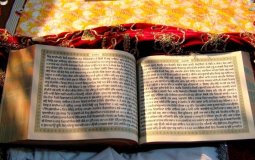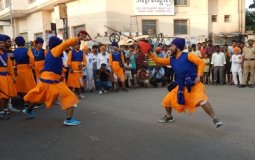Instead of the progressive initiatives taken by some gurudwaras, there had been some opposition
Towards a Global Ethic
The Shiromani Gurdwara Prabandhak Committee (SGPC) took multi-fold decisions during a meeting held at the beginning of the year 2023 in January.
The Siri Guru Granth Sahib has 1,430 pages of spiritual teachings and melodies and has 36 contributors in all.
The Sikh Federation UK (SFUK) celebrated the victory of its campaign to get a Sikh ethnic tick-box added to the 2021 UK census. The Scottish government agreed to include a Sikh prompt in the "other" section of the ethnicity response options.
Gatka performances are a delight to witness! Visit the Hola Mohalla festivities in Anandpur in March to see Gatka in all its splendor. Or you can go to some of the top Gatka akharas to see this Sikh warrior martial art form in action.
Every year, the Yuba City of California draws large crowds for the annual Sikh festival, Nagar Kirtan, around the first weekend of November.
Blue Lions, a well-known UK-based group belonging to the ancient lineage of the Warrior Akali Nihang Singhs, performed a sold-out debut performance at Royal Albert Hall.










